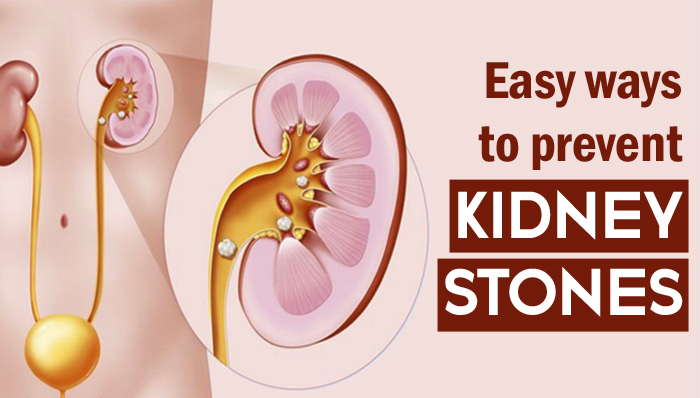Preventing Kidney Stones in Modern Times: A Comprehensive Guide
Kidney stones are a growing health concern in today’s fast-paced and often sedentary lifestyle. These painful mineral deposits form in the kidneys due to a combination of dietary habits, dehydration, and underlying health conditions. Preventing kidney stones is more relevant than ever, given the increasing prevalence of risk factors such as processed diets, stress, and limited physical activity. This guide explores practical and effective ways to minimize the risk of kidney stones in the context of modern living.

Understanding Kidney Stones in Today’s Context
In a world dominated by convenience, many people consume diets high in sodium, sugar, and processed foods, contributing to kidney stone formation. Dehydration, often overlooked due to busy schedules, further exacerbates the problem by concentrating minerals in urine. With these modern challenges in mind, a proactive approach to kidney stone prevention becomes essential.
1. Prioritize Hydration in a Busy Lifestyle
Dehydration is one of the leading causes of kidney stones. In today’s scenario, staying adequately hydrated can be challenging due to packed schedules and excessive reliance on caffeinated beverages like coffee and tea.
Tips to Stay Hydrated:
Monitor urine color: Pale yellow indicates proper hydration.
Carry a reusable water bottle and aim for at least 2-3 liters of water daily.
Include hydrating foods like cucumbers, watermelon, and oranges in your diet.
2. Adopt a Kidney-Friendly Diet
Modern diets often include excessive sodium, sugar, and processed foods that contribute to kidney stone formation. A kidney-friendly diet focuses on balance and mindful eating.
Dietary Recommendations:
Limit Animal Proteins: Reducing red meat and poultry can help lower uric acid levels.
Reduce Sodium Intake: Limit consumption of processed foods, canned soups, and salty snacks.
Include Calcium-Rich Foods: Foods like milk, yogurt, and cheese help bind oxalate and reduce stone risk.
Avoid Oxalate-Rich Foods in Excess: Minimize spinach, nuts, and chocolate while balancing them with calcium sources.
3. Maintain an Active Lifestyle
Sedentary habits, common in modern workplaces, can negatively impact kidney health. Lack of movement may lead to weight gain and metabolic imbalances that increase the likelihood of stone formation.
Staying Active:
Maintain a healthy weight to reduce metabolic stress on the kidneys.
Incorporate regular exercise, such as walking, yoga, or cycling, into your routine.
Avoid prolonged sitting; take short breaks to stretch or move around.
4. Manage Stress and Mental Well-Being
Stress is an often-overlooked contributor to kidney stone risk. Chronic stress can lead to unhealthy eating patterns, dehydration, and hormonal imbalances.
Stress-Reduction Techniques:
Seek professional counseling if stress becomes overwhelming.
Practice mindfulness or meditation to manage stress effectively.
Create a work-life balance to avoid burnout and maintain overall health.
5. Monitor and Modify Beverage Choices
In today’s coffee and soda-driven culture, many people unknowingly consume beverages that increase the risk of kidney stones.
Beverage Guidelines:
Include Citrate-Rich Drinks: Lemon water and orange juice can help prevent stone formation by reducing crystal aggregation.
Limit Sugary Drinks: Cut down on sodas and sweetened juices.
Moderate Caffeine Intake: Replace excess coffee with herbal teas or plain water.
6. Regular Health Check-Ups
Given the demands of modern life, regular health check-ups often take a backseat. However, periodic monitoring of kidney health can identify early signs of stone formation.
Key Tests to Consider:
Imaging tests, such as ultrasounds, for detecting small stones.
Blood tests to check calcium and uric acid levels.
Urine tests to analyze mineral composition.
7. Embrace Technology for Health Management
Today’s technology can help manage health goals and prevent kidney stones. Apps and devices make it easier to stay informed and consistent.
Use Technology Smartly:
Use fitness trackers to monitor weight and exercise routines.
Track water intake with hydration apps.
Set reminders for meals and physical activity breaks.
Conclusion
Preventing kidney stones in today’s dynamic environment requires a mindful approach to hydration, diet, and lifestyle. By addressing modern challenges such as stress, poor dietary habits, and sedentary routines, individuals can significantly reduce their risk of developing kidney stones. With consistent efforts and small daily changes, it is possible to maintain kidney health and enjoy a pain-free life. Stay proactive, stay hydrated, and embrace a balanced lifestyle for a healthier tomorrow. Best Kidney Stones Treatment at Agrawal Hospital – SUPER SPECIALITY HEALTH CARE, Jaipur
